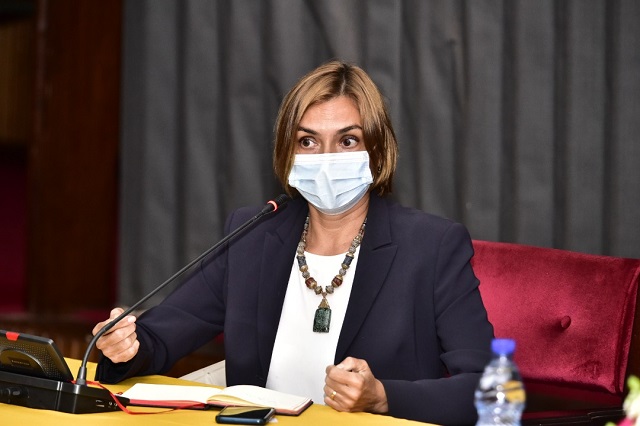
Kampala, Uganda | THE INDEPENDENT | The International Monetary Fund – IMF is so far satisfied with the way Uganda has managed the COVID-19 relief packages the country has received from the organization over the last two years.
In June last year, the IMF board approved a relief package for Uganda under the Extended Credit Facility worth 1 billion dollars over three years. Of this, 258 million US Dollars or 908 billion Shillings, was to be disbursed immediately to help the country meet the financing gap caused by emergency reallocation of resources.
This followed another package under the Rapid Credit Facility in May 2020. Prior to the second package, the IMF sought guarantees from the Ugandan authorities that the money would be used prudently and transparently, in accordance with the guidelines set.
Speaking at the Regional Dialogue on Domestic Resource Mobilisation in the East African Community in Kampala, IMF Resident Representative, Izabela Karpowicz said they are satisfied with the transparency and reporting methods by the Ugandan authorities on the Rapid Credit Facility.
This comes as parliament is carrying out investigations into the reported misuse of funds allocated by the government towards the fight against COVID-19. The IMF packages were partly to boost its support for the Domestic Revenue Mobilisation Strategy for Uganda, a plan aimed at helping the country manage its debt and reduce borrowing.
The dialogue organized by the Southern and Eastern Africa Trade Information and Negotiations Initiative, SEATINI, was also partly to chat ways for the East African Community countries to increase their domestic revenues.
EAC Affairs Minister Rebecca Kadaga said focusing on domestic revenue is now more important than before because the external support sources are dwindling. She however noted the recurrent hiccups in the regional integration process like border closures, which she said is affecting the economic progress of the countries.
The EAC also came under attack for not doing enough to resolve misunderstandings amongst member countries. The EAC countries have been accused of maintaining nationalist or protective policies that otherwise affect the integration process, which thrives on members shedding some sovereignty.
EA Legislative Assembly member, George Stephen Odongo, who is also the chair of the EALA Uganda chapter, said some of the challenges they face include the many directives from the Council of Ministers, as well as the differences in legal regimes. Odongo advised the countries to use the dwindling foreign aid as an opportunity to develop local capacity because locally raised revenues are the most sustainable way to run budgets.
Dicksons Kateshumbwa, the MP for Sheema Municipality and a former Commissioner Customs at Uganda Revenue Authority, blamed all tax and trade failures in the EAC on failure to have an implementing and enforcement mechanism of policies made.
He says that there are many policies that would respond to the current hiccups, but they have never been implemented, mainly because countries refuse to give up some national interests for the sake of integration.
Uganda’s debt is now about 73 trillion Shillings, which is about half of the GDP. China is the biggest bilateral lender to Uganda, but there is rising concern that China’s debt is more expensive and poses a lot of risks compared to concessional loans from multinational lenders like the World Bank.
Everline Aketch, the sub-regional Secretary for English-Speaking Africa at Public Services International, said it was time that African countries dropped China as a lender though the Chinese loans are easy to get, saying they put national assets at a risk.
****
URN
 The Independent Uganda: You get the Truth we Pay the Price
The Independent Uganda: You get the Truth we Pay the Price


